Last Updated on October 10, 2023 by Linda Richard
Labrador Retrievers, those lovable, furry companions known for their boundless energy and insatiable appetite, often leave their owners puzzled when they start munching on grass in the backyard or during a leisurely walk in the park.
It’s a common sight for Labrador owners, but have you ever wondered why your Labrador indulges in this peculiar behavior? Why Do Labradors Eat Grass? In this article, we’re going to delve into the fascinating world of Labrador grass consumption, exploring the reasons behind it and dispelling some common misconceptions along the way.
So, if you’ve ever scratched your head while watching your Labrador feast on grass, stay with us as we unravel the green mystery that surrounds this intriguing canine habit.

Table of Contents
What is Grass Eating and Why do Dogs do It?
Grass eating, also known as **pica**, is the behavior of eating non-food items, such as grass, dirt, rocks, paper, etc. It is a common behavior among dogs of all breeds and ages, but especially among Labradors who are known for their voracious appetite and curiosity.
There are many theories and hypotheses about why dogs eat grass, but no definitive answer. Some of the possible reasons are:
- Boredom: Dogs may eat grass to relieve boredom or stress, especially if they are left alone for long periods or lack adequate exercise and stimulation.
- Taste: Dogs may eat grass simply because they like the taste or texture of it, or because they are attracted by the smell of other animals’ urine or feces on the grass. For dogs with access to artificial grass, it’s important to find the best artificial grass cleaner for dog urine to reduce this temptation.
- Digestion: Dogs may eat grass to aid their digestion, either to induce vomiting when they feel sick or to add fiber to their diet when they are constipated.
- Nutrition: Dogs may eat grass to supplement their nutrition, especially if they are fed a low-quality or unbalanced diet that lacks certain vitamins, minerals, or enzymes.
- Ancestral instinct: Dogs may eat grass to mimic their wild ancestors who ate plant matter as part of their omnivorous diet, or to cleanse their intestines of parasites or toxins.
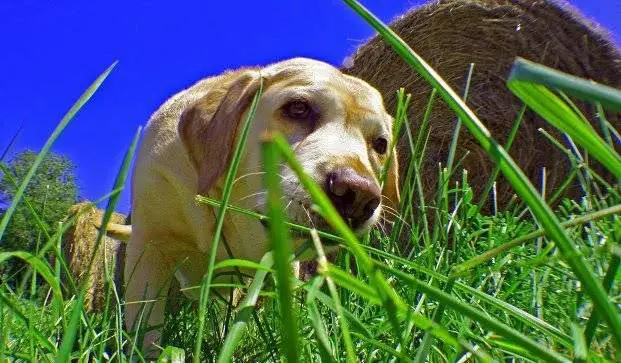
Potential Risks and Benefits of Grass Eating for Labradors
Grass eating is generally considered a normal and harmless behavior for Labradors, as long as it is done in moderation and does not interfere with their normal eating habits. However, there are some potential risks and benefits that you should be aware of.
Risks
Some of the possible risks of grass eating for Labradors are:
- Parasites: Grass may be contaminated with parasites such as worms, giardia, or coccidia, which can infect your dog and cause diarrhea, vomiting, weight loss, anemia, or other serious health problems. You should regularly deworm your dog and keep them up to date with their vaccinations to prevent parasite infections.
- Pesticides: Grass may be treated with pesticides such as herbicides, insecticides, or fungicides, which can be toxic for your dog if ingested. You should avoid letting your dog eat grass from areas that are sprayed with chemicals or use natural alternatives to control weeds and pests in your lawn or garden.
- Vomiting: Grass eating may trigger vomiting in some dogs, either intentionally or unintentionally. While occasional vomiting may not be harmful for your dog, frequent vomiting can cause dehydration, electrolyte imbalance, esophageal damage, or aspiration pneumonia. You should consult your vet if your dog vomits more than once a week or shows signs of distress.
Diapers can also be used temporarily in cases of excessive grass eating to limit access to grass and prevent gastrointestinal issues. However, labs can easily remove diapers, be sure to follow proper guidelines on how to keep a diaper on a dog?
Benefits
Some of the possible benefits of grass eating for Labradors are:
- Fiber: Grass is a good source of fiber, which can help your dog regulate their bowel movements and prevent constipation. Fiber can also help your dog feel full and reduce their appetite, which can be beneficial for overweight or obese Labradors who need to lose weight.
- Vitamins: Grass contains vitamins such as vitamin A, vitamin C, vitamin K, and folic acid, which can support your dog’s immune system, vision, blood clotting, and cell growth. However, these vitamins are not easily absorbed by your dog’s digestive system and may be destroyed by cooking or processing. Therefore, grass is not a reliable source of vitamins for your dog and should not replace a balanced diet.
- Enzymes: Grass contains enzymes such as chlorophyllase and peroxidase, which can help your dog digest food and detoxify their body. Enzymes can also act as antioxidants and anti-inflammatory agents, which can protect your dog from oxidative stress and inflammation.
However, these enzymes are also not easily absorbed by your dog’s digestive system and may be destroyed by cooking or processing. Therefore, grass is not a reliable source of enzymes for your dog and should not replace a balanced diet.
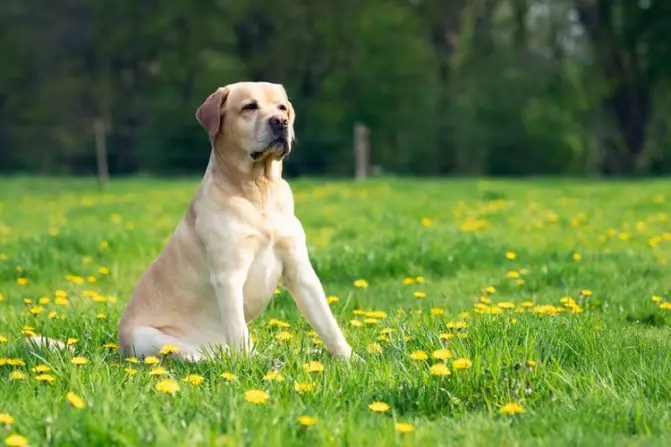
How to Prevent or Reduce Grass Eating in Labradors
If you are concerned about your Labrador’s grass eating habit or want to prevent or reduce it for any reason, here are some tips that you can try:
- Provide a balanced diet: Make sure that your dog is fed a high-quality and balanced diet that meets their nutritional needs and preferences. You can consult your vet or a canine nutritionist for advice on the best diet for your dog. You can also add supplements such as probiotics, digestive enzymes, or multivitamins to your dog’s diet if needed.
- Offer alternative treats: Provide your dog with healthy and tasty treats that can satisfy their craving for grass or other non-food items. You can use fresh or dried fruits, vegetables, herbs, or grasses that are safe for dogs, such as apples, carrots, parsley, mint, or wheatgrass.
- Increase exercise and stimulation: Make sure that your dog gets enough physical and mental exercise and stimulation every day to keep them happy and healthy. You can take your dog for walks, runs, hikes, or swims, play fetch, tug-of-war, or hide-and-seek with them, or enroll them in agility, obedience, or other training classes. You can also provide your dog with interactive toys, puzzles, or games that can challenge their intelligence and curiosity.
- Consult a vet: If your dog’s grass eating habit is excessive, compulsive, or causes any health problems, you should consult your vet for a thorough check-up and diagnosis. Your vet may perform blood tests, stool tests, x-rays, or other tests to rule out any medical conditions that may cause pica in dogs, such as anemia, diabetes, liver disease, kidney disease, or intestinal blockage.
Your vet may also prescribe medications or behavioral therapies to treat any underlying issues or disorders that may cause pica in dogs, such as anxiety, depression, obsessive-compulsive disorder (OCD), or attention deficit hyperactivity disorder (ADHD).
Conclusion
Grass eating is a normal behavior for Labradors that may have various reasons and effects. It is usually harmless and beneficial for your dog as long as it is done in moderation and does not interfere with their normal eating habits.
However, there are some potential risks and benefits that you should be aware of and monitor. If you are concerned about your Labrador’s grass eating habit or want to prevent or reduce it for any reason, you can try the tips mentioned above or consult your vet for professional advice.
FOTO
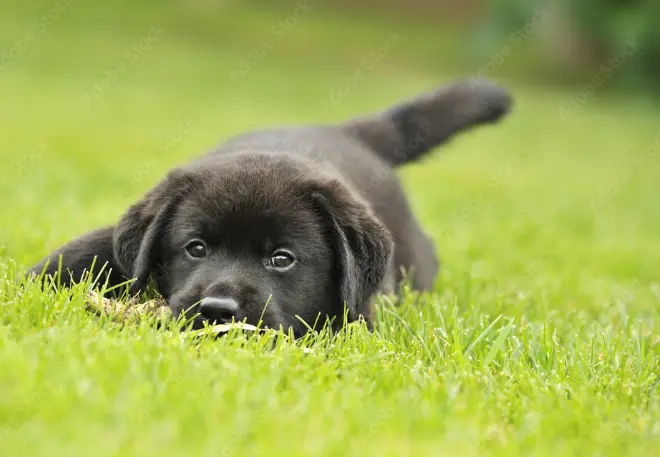
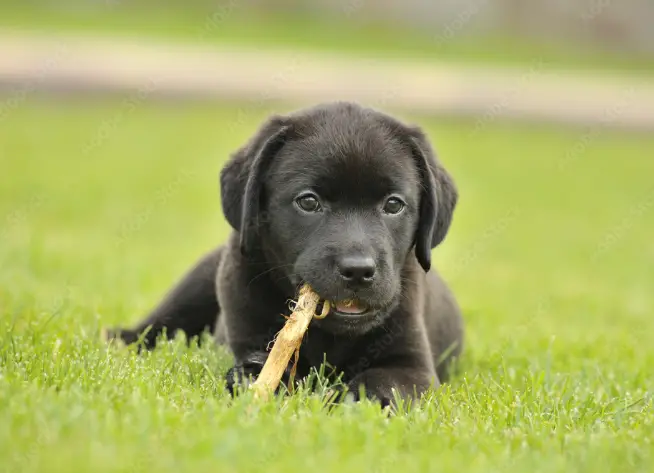

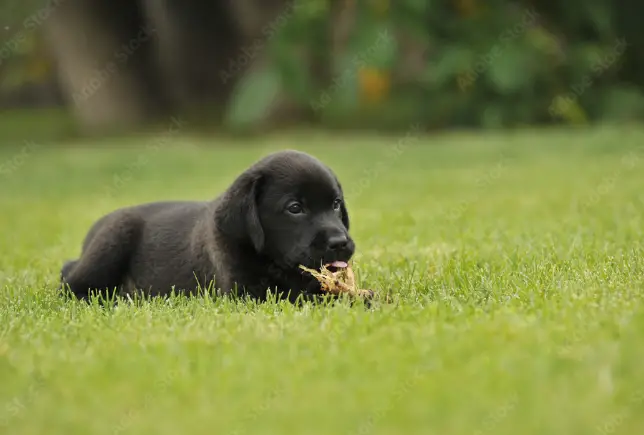
Read also: The best dog food for Labrador Retrievers
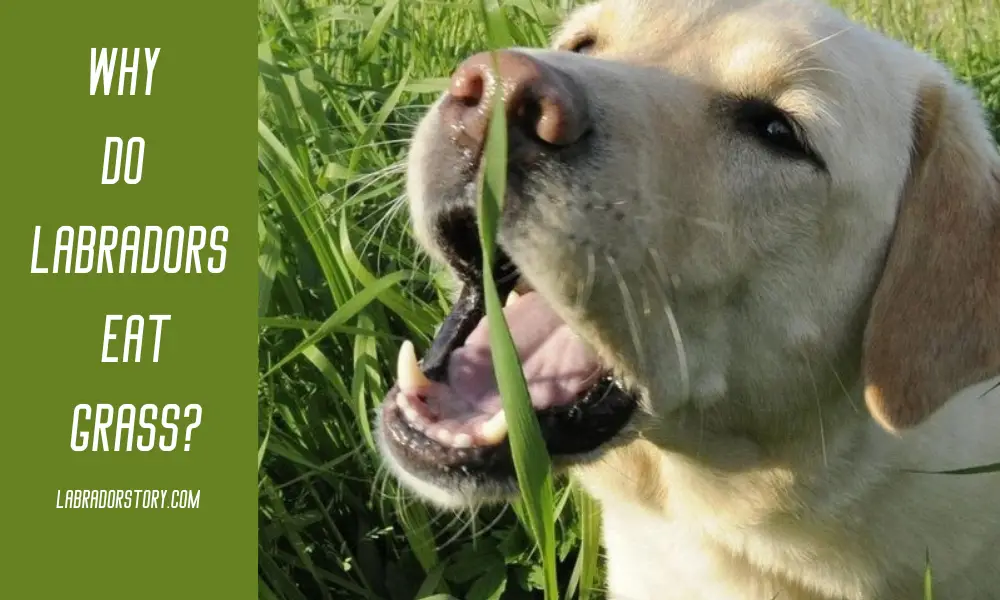

1 thought on “Why Do Labradors Eat Grass? Unraveling the Green Mystery”
Comments are closed.